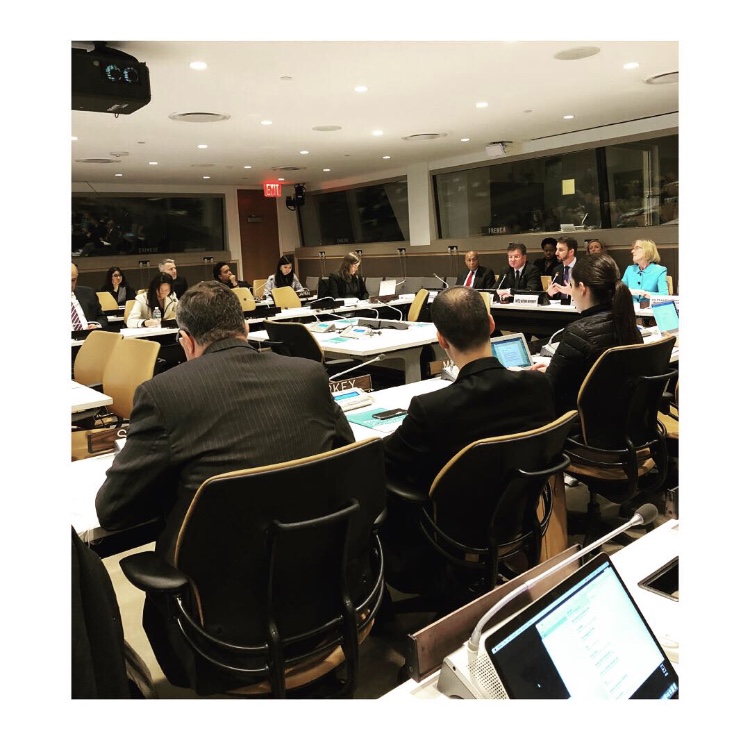The Permanent Mission of Australia to the United Nations and the United Nations University recently engaged in a dialogue on “Preventing Tomorrow’s Conflicts.” The discussion, held on the 18th of April, would be the final report of the findings and conclusions from a speaker series which touched base on sustaining peace and building an “over-the-horizon” influence on policy deliberations.
Opening the dialogue, the speakers reflected on similarities and disparities of conflict in present-day and in the future. The themes observed during the series gathered inferences on seven key components, which included the growing conflict risk, the shift in motivations and incentives, and the approach towards prevention in the information domain. Other topics discussed included the need for changing the method of analysis, the need for collaborative innovation, and the lack of reinvention.
The topics mentioned aligned within the common theme recently distributed at the UN. After adopting resolutions on ‘Sustaining Peace’ in April of 2016, Secretary-General António Guterres prioritizes prevention and its influence in the global community. And in light of this movement, UN General Assembly President Miroslav Lajčák held high-level meetings to continue the dialogue and assist in the efforts to strengthen the oncoming work on peacebuilding and sustaining peace.
During this meeting, President Lajčák touched on a number of topics addressing the fundamental principles of prevention and its application towards peacebuilding efforts.
“Prevention is not a theory, and there is a need for strong regional engagement,” said President Miroslav Lajcák.
He expressed that the UN was established to prevent conflict. Therefore, it should start treating prevention unlike a utopian, desired ideology but a sound methodology. Furthermore, considering the models of collaboration, there was a frequent mention of the word “silos” by numerous speakers including H.E. Lajčák. The recurring theme was an urge to work beyond the silos of yesterday to prevent the conflicts of tomorrow.
In addition to the purpose and identification of prevention, he honed in the necessity of regional engagements. Given the rise of conflicts and the ongoing repercussion of the migration crisis, the spilling over of conflicts in neighboring countries is also of concern. Addressing the spillover of conflict, questions raised included: how are we able to finance cross-border initiatives? The overwhelming answer conveyed bringing teams to work collaboratively and inclusively, which requires the ways to use our resources and financial instruments. Therefore, it is recommended that it is equally important that all member states engage in peacebuilding.
“The need to focus on partnerships and more with the privateer is also crucial,” said President Miroslav Lajčák.
With intergovernmental coherence, the international community can foster kin-like mentality and environment where states work hand in hand. The UN can also utilize is network even further to promote peacebuilding through ongoing dialogue. As a result, states and other international actors are better able to access the positives taking part in conversations and the costs neglecting prompt action. It is during these conversations the international community can learn from their past and be equipped for the future.
James Cockayne, Director of UN University Office at the United Nations, confirmed on this connotation, stating, “Simply the fact we all at the UN need to better is explaining the successes in the background at the UN. Peacekeeping was an invention of the secretariat. The UN is not anti-innovation.”
During the dialogue, the speakers reiterated the importance of clarifying that the 2030 Agenda for Sustainable Development is the best defense against violence and insecurity. Moreover, it ensures peace and promotes productivity. According to the testimonies of the speakers, it seemed that prevention is the forefront in establishing that goal.
“Sustaining peace has prevention at its core,” said President Miroslav Lajčák.
More integrated and sophisticated methods and record of conflict analysis is the key driver to successful early action in conflict prevention. Utilizing the information already available in a persuasive manner to not only deter conflicting parties from violence, it reveals their shared interests must be at the forefront of prevention.
Speakers vocalized the importance in addressing more deliberate and calculated approaches to promote dialogue. By engaging in more conversations discussing the root causes including climate change and the dynamics of cyber warfare, the global community can better understand the narratives and incentives. Furthermore, international organizations can better understand how they can assist states in need. Particularly, they can be of more assistance to locations that are highly contested and alleviate the stigmatized connotation of receiving assistance.
“Encouraging to see more countries come to the UN for assistance. It should not be stigmatized and never be a sign of failure but seen in a productive light and a positive gain for a state,” expressed an Ambassador.
In sum, understanding the truth, justice, and reconciliation elements of a conflict, shed light on the role of focusing on the grievances and how we deal with the history, politics, culture, etc. Should any one of these elements be ignored, peace will not be sustainable. Therefore, the international community should grasp the significance of prevention to ensure a peaceful global society.
Ruthly Cadestin and Morgan McMichen are UN Digital Representatives for the Center for UN Studies and Global Governance. Currently, they are graduate students at the School of Diplomacy and International Relations at Seton Hall University.
